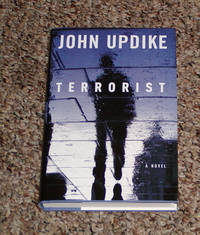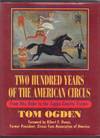
TERRORIST
by Updike, John
- Used
- Fine
- Hardcover
- first
- Condition
- Fine/Fine Dust Jacket.
- ISBN 10
- 0307264653
- ISBN 13
- 9780307264657
- Seller
-
CHICAGO, Illinois, United States
Payment Methods Accepted
About This Item
Synopsis
John Updike has written a brilliant novel that ranks among the most provocative of his distinguished career. Terrorist is the story of Ahmad Ashmawy Mulloy, an alienated American-born teenager who spurns the materialistic, hedonistic life he witnesses in the slumping New Jersey factory town he calls home. Turning to the words of the Holy Qur'an as expounded to him by the pedantic imam of a local mosque, Ahmad devotes himself fervently to God. Neither the world-weary guidance counselor at his high school nor Ahmad's mischievously seductive classmate Joryleen succeeds in deflecting him from his course, as the threads of an insidious plot gather around him."One compelling and surprising ride."--USA Today"The startlingly contemporary story of a high school student . . . whose zealous Islamic faith and disaffection with modern life make him a pawn in the larger conflict between Muslim and Christian, East and West. They also make him a powerful voice for Updike's ongoing critique of American civilization."--Time"A chilling tale that is perhaps the most essential novel to emerge from Sept. 11."--People (Critic's Choice)From the Trade Paperback edition.
Reviews
(Log in or Create an Account first!)
Details
- Bookseller
- Modern Rare
(US)
- Bookseller's Inventory #
- 9991
- Title
- TERRORIST
- Author
- Updike, John
- Format/Binding
- Hardcover
- Book Condition
- Used - Fine
- Jacket Condition
- Fine Dust Jacket.
- Quantity Available
- 1
- Edition
- First Edition. First Printing.
- ISBN 10
- 0307264653
- ISBN 13
- 9780307264657
- Publisher
- Alfred A. Knopf
- Place of Publication
- New York City, NY
- Date Published
- 2006
- Pages
- 310
Terms of Sale
Modern Rare
We ship at cost, based on weight, destination, and shipping method. We ship via Standard or Expedited USPS or FedEx in the US and Globally. Payable in $US dollars by Visa, Mastercard, American Express, Discover, personal check, cashiers check, money order, or wire transfer. Returns accepted, with prior notification, within 10 days after shipment, provided the item is in the same condition it was shipped. We make every effort to describe the item as accurately as possible. Shipping costs are non-refundable. All Magazine, DVD/Blu-ray, and audiotape sales are final and non-refundable. Email us at modernrarenow@gmail.com or call us at 312-376-5000.
About the Seller
Modern Rare
About Modern Rare
Glossary
Some terminology that may be used in this description includes:
- Crisp
- A term often used to indicate a book's new-like condition. Indicates that the hinges are not loosened. A book described as crisp...
- Jacket
- Sometimes used as another term for dust jacket, a protective and often decorative wrapper, usually made of paper which wraps...
- First Edition
- In book collecting, the first edition is the earliest published form of a book. A book may have more than one first edition in...
- Fine
- A book in fine condition exhibits no flaws. A fine condition book closely approaches As New condition, but may lack the...

